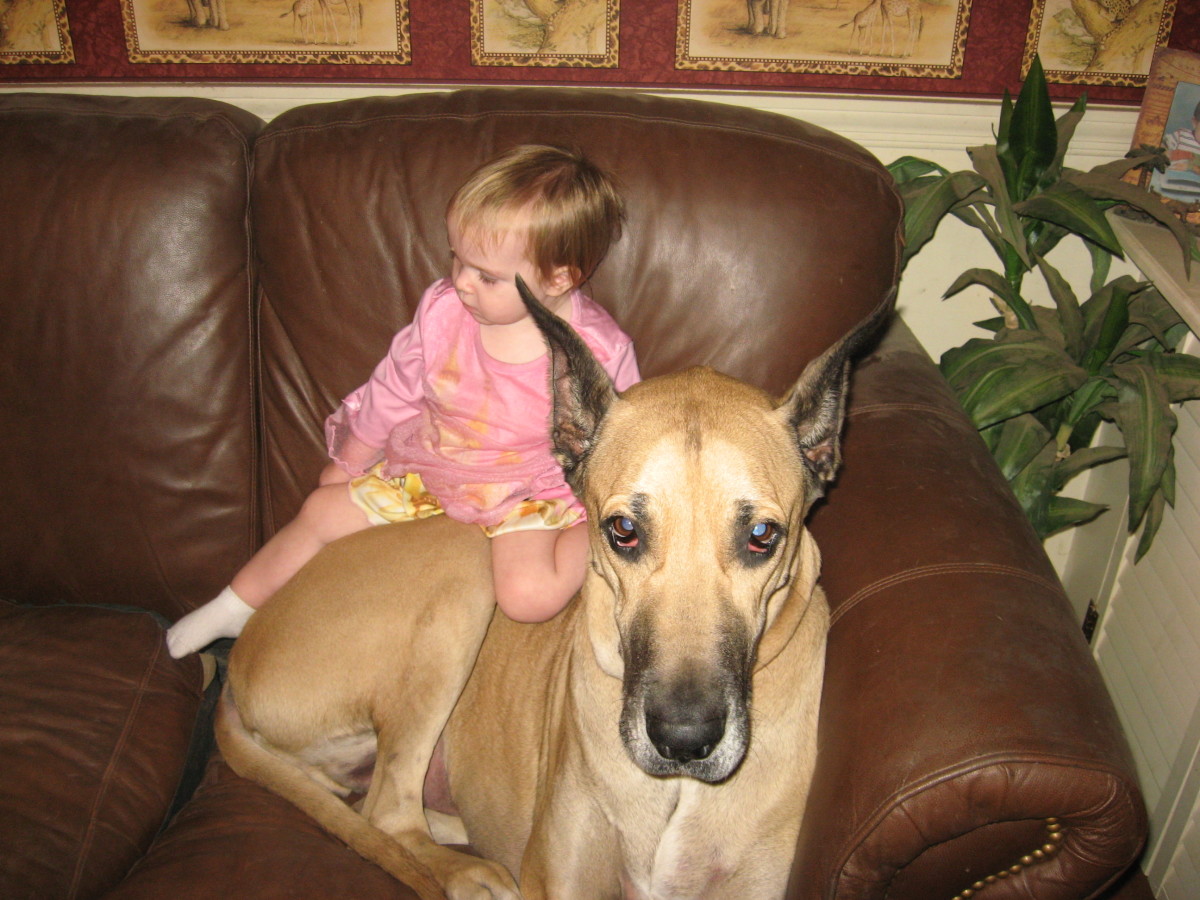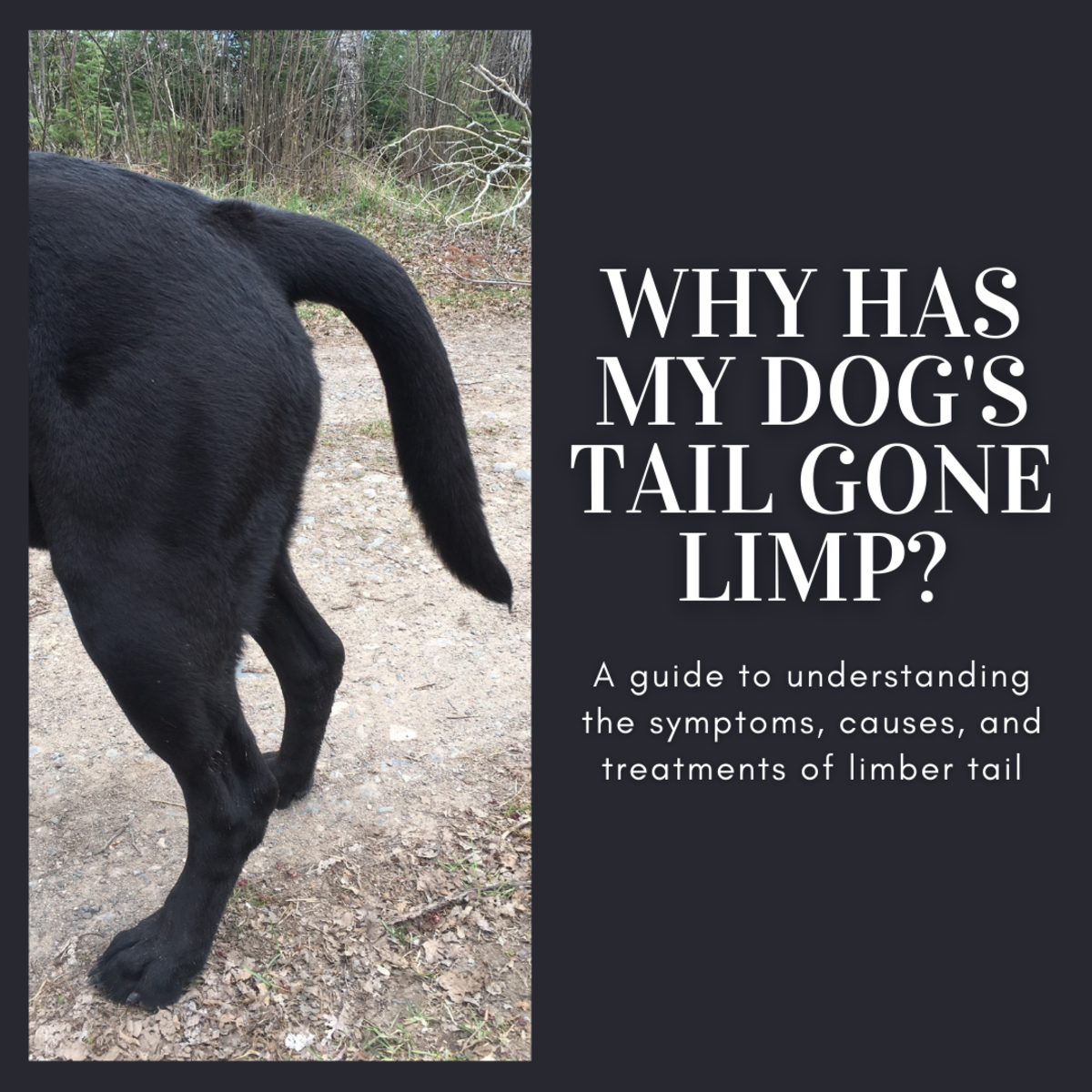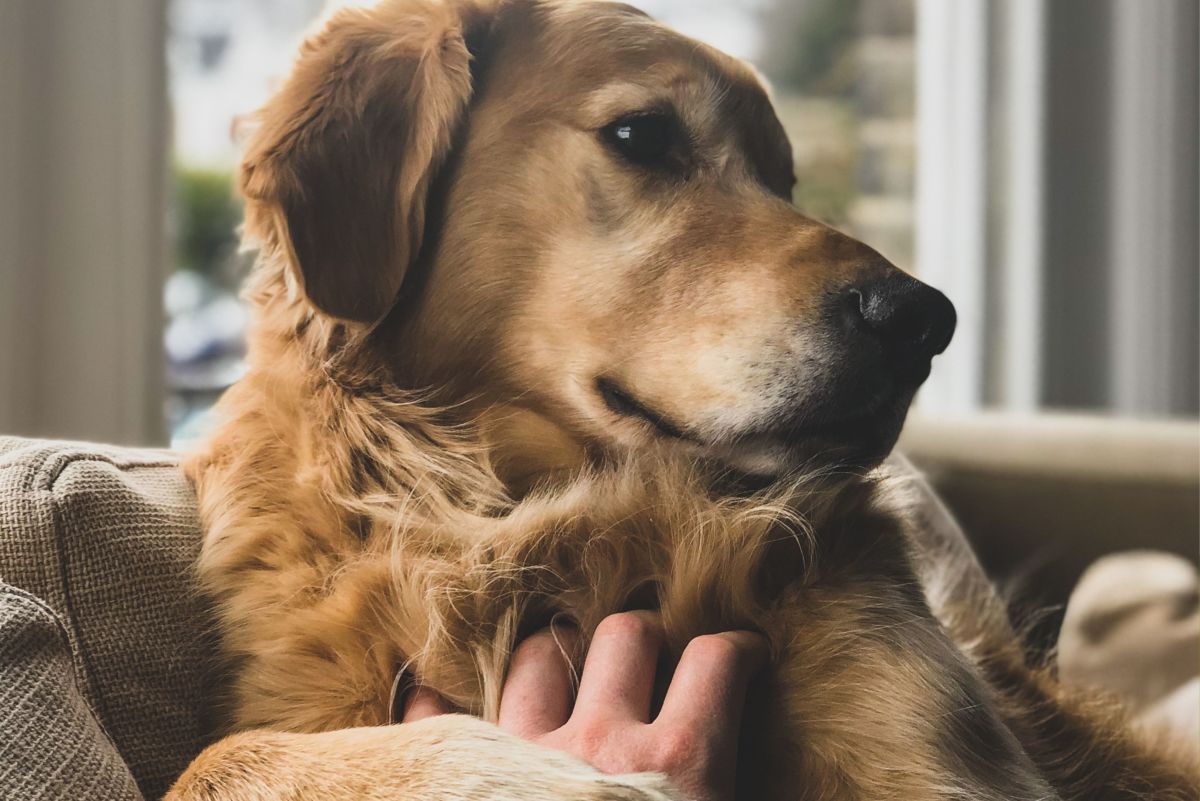Health Benefits for Children Growing Up With a Family Dog

So Your Children Want a Dog - Now What?
So your children like dogs. They know someone who has a dog at school. They want a dog, they bug you endlessly to get one. Maybe you had one at their age. You think it’s a good idea.
You worry about the cost of dog ownership, the responsibility and the investment value. What else will dog owning do during childhood development to make all this worth it!
Dogs Have Unexpected Psychosocial Value For Children
I have owned a dog before on my own, and during our family’s early years of childhood. I started a blog as my dog aged. There were so many questions I had about senior dogs as I progressed through that journey. Along the way our dog Titan was joined by our daughter, Caroline, who was born in the summer of 2011.
I kept writing about dogs while on maternity leave, but I quickly took on a new interest; family dogs and childhood development. It was easy to see that after 3 months in our world, infants can already show interest in their family pets. Parents get first hand observations of a unique bonding between infants, toddlers or children and the family dog.
So when we talk about the investment value of owning a dog while your children grow and become teenagers, realise there is so much more to the decision that is backed by academic, peer reviewed research that has an overwhelmingly positive outcome for children’s development.
Benefits of Growing Up With a Family Dog
I reviewed multiple academic peer reviewed journals regarding family dogs and children’s psycho-social development. Initially, many of the parents in the research studies had average concerns regarding getting a family dog.
As we all do, parents worried most about the amount of time the family had to provide adequate pet care and they were also concerned regarding the cost of dog ownership as it is a long-term commitment (Carlisle, G.K. 2013).
In my house as we look forward to one day getting another dog for ourselves, our primary concern is that we live in an apartment. It would be challenging for the dog to have access to the outdoors, and adequate space indoors. It’s a tight fit for us as it is!
Some families do not plan much at all. It is a unanimous decision and they are prepared to take each challenge as it presents itself.
What are some of your concerns when you consider getting a family dog?
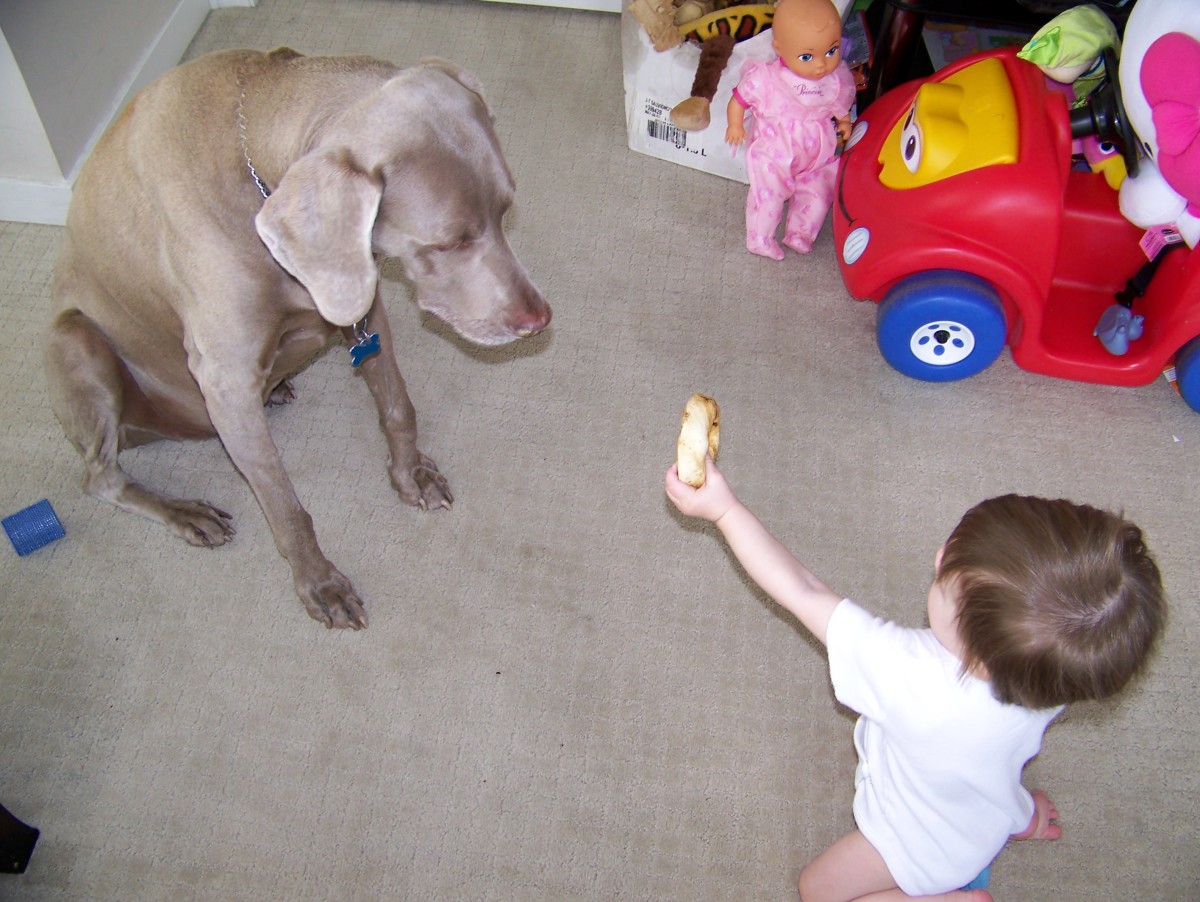
How Family Dogs Benefit Child Development
A study done by A.M. Gadomski et al. (2015) found that children who had a dog at home had reduced stress and anxiety compared to rates of stress and anxiety in children who had no pets at home.
The researchers, Gadomski et al (2015) do raise the point that it is hard to determine whether having a family dog is actually the reason children experienced less stress and anxiety or whether more laid back children generally where more likely to have family dogs?
However, there are many other studies that do validate that having a family dog does help generally reduce stress and anxiety in children overall. This is what I find so exciting and fun about research! By trying to answer one question more questions arise!
Research Does Prove Dogs Facilitate Social Development in Children
Gadomski et al (2015) stated that dogs do promote children's physical and mental health in an overlapping, complex interplay of social norms. They developed a model outlining play, caretaking, social interaction and companionship being the core social norms promoted by dog ownership within the family.
Benefits For Children Growing Up with Family Dogs
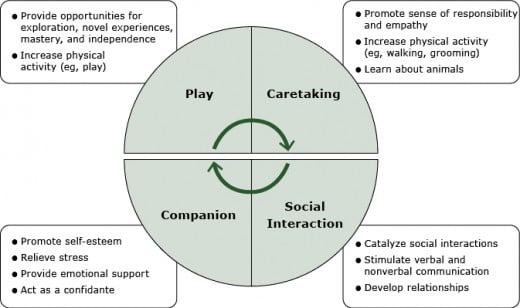
What do you think of this research model and the core skills that a child can gain by growing up with a family dog?
Why is Child Development So Important?
Research is so important to childhood development because a study initially conducted in the 1990's, The Adverse Childhood Experience (ACE Study), showed how long-standing, chronic exposure to life stress in childhood and cortisol release directly correlates to health and longevity in adulthood. More simply put, constantly highly stressed and anxious children experienced stress hormone release that negatively impacts their adult health. Constant long-term cortisol, or stress hormone release, has been correlated with causing damage to the heart, lungs and mind overtime. Children who grew up with constant fluctuations and stress in childhood where much more likely to development poor health habits and smoke, drink alcohol or take drugs than children with less stress and more stability.
Adverse Childhood Experiences (ACE) Study Video 2012
Some "ACES" Are Beyond Parental Control
Please do not think that your child's development will not be maximised by not choosing to own a dog. This is just to illustrate that among many factors that parents can control, owning a family dog, if they choose too, provides the child many benefits. Some of these benefits include, a secure, non-judgemental companion which gives all children a chance to debrief and reflect on life events. A dog is another outlet that helps build resilience in children. Resilience is achieved when the child develops coping skills that preserve their self-esteem, emotions and sense-of-control.
Building Childhood Resilience: With Or Without A Dog
So you don't have a dog, or maybe you do, but you want to know how you can help your child be resilient. Here's some tips for parents on how you can promote your child's resilience.
- Validate your child's emotions
- Tell your child you are proud of them
- Give them age-appropriate responsibility
- Have adult discussions of current (global) events at a child's level
- Role model respect through good manners, say "please"and "thank you"
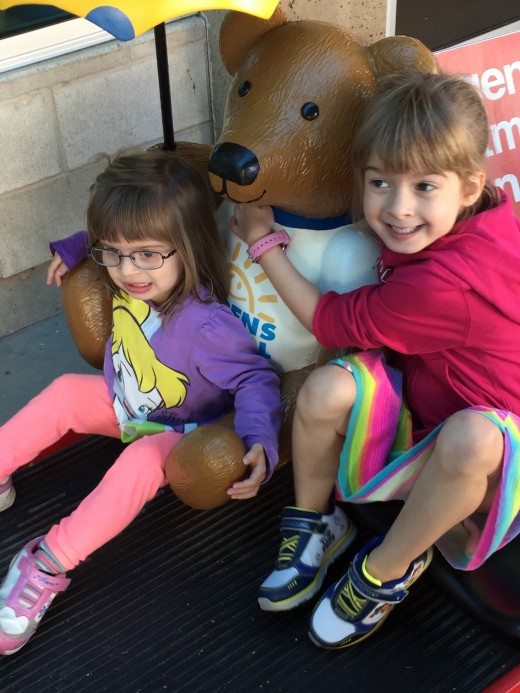
Surround Your Child with Safe Adults and Dogs
Children naturally try to do the right thing and are willing to please. They are direct products of their environments. They are generally sensitive and reflective to their surroundings and the people closest to them have the greatest influences. The larger a social network of safe, protective, and caring adults a child has the more the child grows in a positive, safe, environment and can explore the world with confidence.
Family Dogs Provide Multiple Social Benefits For Children
In this informative article we looked at the investment value of getting a family dog when you have children at home. First, we briefly review more typical decisions parents are concerned about and then we look at what research found when exploring how children grow and develop when they have a family dog.
We review the "ACE" study because it holds such value in how vulnerable children are. That the child's idea of perceived stress and trauma largely impacts their life-long development in regards not only to their psychological but also medical health. Some "ACE" factors are controllable and many are not. There are many ways to bring positive influences and relationships to children, one of which is through pets.
Having a family dog promotes your child's health by buffering anxiety and stress, promoting social interactions, getting children outside to play, and providing first hand experience in "caring for" and "caring about" someone else, therefore expanding their development of empathy and emotional intelligence.
References:
Carlisle, G.K. (2014). Pet ownership decisions for parents of children with autism spectrum disorder. Journal of Pediatric Nursing. 29(2) pp. 114-123.
Gadomski, A.M., Scribani, M.B., Kupra, N., Jenkins, P., Nagykaldi, Z., & Olson, A.L.(2015). Preventing chronic disease: Public health research, practice and policy. 12 E206.
This content is accurate and true to the best of the author’s knowledge and is not meant to substitute for formal and individualized advice from a qualified professional.
© 2020 Yuliss



